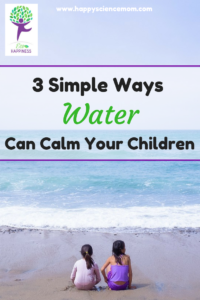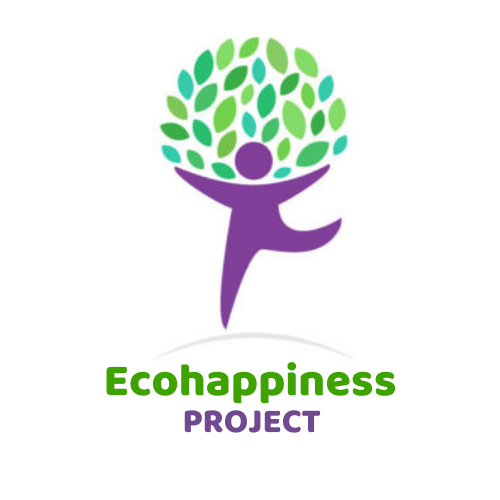 Are your kids hyped up and driving you nuts? You will never believe it, but you can actually calm your kids down using something as simple and available as water.
Are your kids hyped up and driving you nuts? You will never believe it, but you can actually calm your kids down using something as simple and available as water.
Water is everywhere. Our bodies are 70 percent water and about the same percentage of the earth’s surface is covered in water. It’s no surprise that throughout time people have been attracted to water for its many beneficial properties – like beauty and tranquility.
Now, science actually shows that being in and around water can calm our bodies and minds. It is clear that water demonstrates the importance of nature in our life. Here are three ways that water can help your children relax.
Observe It
Have you ever lost yourself in the beauty of the ocean, a flowing waterfall, or even an aquarium? You are certainly not alone. Water is known to give us a sense of peace and serenity. In fact, medical studies have found less cortisol (the stress hormone) and more serotonin, oxytocin, and dopamine (the feel-good hormones) in people as they spend time in, on, or around the ocean.
A couple years ago, marine biologist Wallace J. Nichols dove into this topic in his book Blue Mind: The Surprising Science That Shows How Being Near, In, On, or Under Water Can Make You Happier, Healthier, More Connected and Better at What You Do. He believes that we all have a “blue mind,” which he describes as “a mildly meditative state characterized by calm, peacefulness, unity, and a sense of general happiness and satisfaction with life in the moment” that’s triggered when we’re exposed to water.
When we’re around water, our brain becomes engaged in our environment and we enjoy pleasant sensory stimulation. We become so focused on the water that we enter a mindful state. As a result, we enjoy lower stress levels; relief from anxiety, pain, and depression; improved mental clarity and focus; and better sleep.
Water also inspires a sense of awe, as we take in the vastness of the ocean or swim in a large lake. These experiences make us aware of and appreciate our place in this immense world. Such awe-inspiring experiences boost our mood, making us feel happier and calmer. This happens because our nervous system reacts in the opposite way to awe than anxiety. Instead of the “fight or flight” response kicking in, awe keeps us still and relaxed, benefiting both our body and mind.
Water also provides soothing sounds that help us feel calm, as evidenced by all the relaxation and sleep aids that use sounds of water – whether it be crashing waves, the pitter patter of rainfall, or the rush of a flowing river.
Why does the sound of water cause this reaction? Studies show that it’s based on how our brain interprets different noises. These slow, rhythmic whooshing sounds are non-threatening, which is why they calm us down. Also, the sound of water is a type of white noise that helps drown out other noises that might cause us concern.
Find ways to expose your children to awe-inspiring water scenes and sounds, such as:
- Plan trips where you can appreciate the importance of nature in our life; visit impressive water sights like Niagara Falls, the turquoise sea in the Caribbean, waterfalls in Hawaii, and the Great Lakes.
- Visit marine nature centers and aquariums.
- Spend time at the beach and encourage your children to express how the scene makes them feel in creative ways like writing, painting, or singing about it.
- Go fishing or on a boat ride or cruise.
- Listen to water sounds to calm your children at bedtime.
Immerse In It
Spending time in water has a tremendous soothing effect. Some believe this is because it is reminiscent of the time we spent in our mother’s womb surrounded by amniotic fluid. It may also be related to how the water makes us feel weightless and free.
Studies show that floating can actually change our brain waves and reduce cortisol levels, therefore making us feel more relaxed. There is an actual floating therapy now where individuals can visit a float center to spend time in a dark, private room floating in water as a form of meditation. A 2001 study in the Journal of the Canadian Pain Society found that spending time in a flotation tank effectively decreased anxiety and depression, and increased optimism.
Swimming is also known to boost endorphins that increase feelings of well-being. Plus, the rhythmic strokes and sound of water make swimming very relaxing. Research shows that swimming produces the same relaxation response as yoga, increasing calming chemicals and allowing us to enter a meditative state. When we swim laps, we can focus simply on our strokes and breathing, making it easy to shut off all the noises and activity going on outside the pool.
Baths and showers have been used as ways to escape daily stress for ages. By practicing some mindfulness during a bath or shower, we can really focus on the sensations on our skin and the sounds of the trickling water. This helps us be in the moment and forget our worries.
Look for opportunities for your children to spend time in water:
- Sign them up for swim lessons or join a swim team.
- Encourage them to practice floating on their back in the pool.
- Choose vacations where you can enjoy swimming and water sports.
- Turn bathtime into a mindfulness moment by asking them questions about how the water feels and sounds.
- For older children and teens, visit a spa or float therapy center together.
Drink It
Let’s also not forget how critical water is to our health. By simply drinking enough water throughout the day, children can minimize feelings of stress and anxiety. Water plays such an important role in how our body functions. All of our organs, including our brain, need water to work properly. If we’re dehydrated, our body is strained and we can become stressed and edgy. Dehydration can actually cause symptoms that feel like anxiety, such as dizziness, muscle fatigue, headache, feeling faint, increased heart rate, and nausea.
Dehydration has also been linked to higher cortisol levels. According to the Calm Clinic, water appears to have natural calming properties. Drinking water can be soothing, and our body can benefit from the added hydration when we are stressed.
It is so important that we encourage our children to drink enough water every day to help them stay balanced. The amount of water a child needs depends on several factors like activity level and local weather, but in general children should drink at least six to eight cups of water per day.
Your children will probably need more water if they’re participating in sports. It’s suggested that they drink a half cup to two cups of water every 15 to 20 minutes while exercising. For specific recommendations, see the Dietary Reference Intakes(DRIs) developed by the Institute of Medicine (IOM).
As one of our most important natural resources, water provides so many benefits including improving our health and happiness. Have fun exploring new ways for your children to enjoy water through their senses – and you will be grateful for how calm they are as a result.
How do you use water to calm your children?





This is such a sweet post! Your opening lines truly connected me to a vision of the ocean, so calm and blue. I understand exactly how it can be so calming and refreshing to be near fresh, running water.
A trip to a spa is a great idea for an olde child. The experience is very relaxing.
So happy to hear your reaction. I am actually reading the book Blue Mind now, and there’s so many more amazing attributes of water to help us feel happy and relaxed.
Water always calmed my strong- willed child! She still loves the beach. After having breast cancer treatment drink water, water and more water. Love your writing!
Great tip, thank you.
Water can be a very useful tool. When my oldest was an infant, he was very colicky. We could run water over his head to calm him when nothing else would. As a child, I remember water feeling like it gave me life. I was constantly in a pool during summer. I hadn’t really thought about that for awhile until now. Thank you for your post
What a great tactic for colic! Thanks for sharing with us. Water is powerful.
That’s interesting about water being calming, but it definitely makes sense. For a long time my son would have a drink of water after being upset because he said it helped him to calm down.
Such a lovely post! I grew up by the ocean and it’s always been a source of calm and wonder for me. I can’t wait to pass that down to my own kids someday! Thank you for sharing 🙂
I did not know this thanks for sharing
Water is a great tool and these are great ways to use it! We’ve definitely used baths to calm a fussy baby and it usually works instantly! Thanks so much!
This is such a beautiful post for the kiddies. Water can help to soothe children. Thanks for sharing.
Great points, I don’t know why I never thought to use water watching with my kids when it’s something I know helps me! I grew up near the ocean and although we don’t live near it now, it always helps – I figured it was childhood nostalgia but now I can see the benefits for my kids too. Thanks.
Such great ideas! Nature always wins with children. My son loves to be outdoors – we don’t live near the coast but I’m planning a trip now that I’ve read this! He’ll love the sea…
Thanks for explaining the links to science on calming and water. I use water play (in bins, sink or baths) to help calm my kids and we go to the beach as much as we can. We also go kayaking and close our eyes and just listen to the water and the bids.
Water has its powers! When it comes to kids, you are right on the target. It does help them calm down. I see it with my kids. We listen to our water sound lullabies at nighttime, and it even helps me relax. But, of course, we also enjoy our time at the beach or backyard pool splashing. Thank you for sharing all the beautiful reasons for kids being around water.
I love this!!! I just did a similar post about running in the sprinklers. There are so many developmental benefits to kids with water I am so glad you also posted…great minds must think alike lol
I don’t have any children but completely get the connections we have to water. I grew up by the sea and it had such an impact on me and how I relate to the world/environment. I haven’t been back to the water in too long — I feel I need it. Fab post with some really interesting info — thanks for sharing!
Very interesting and informative. It has always been calming to me, but this explains why. Thanks!
Love the cross connection between water and water % of our bodies and the amniotic fluid we lived in for about nine months in the womb. I am most happy when i am at the beach, or river. I guess my inner child becomes relaxed and peaceful. Great read Sandi!
Lovely post. My son has always loved the beach and baths. Also my son will only ever ask me for water when he wants a drink he loves it. thanks for sharing ♥